9 Supplements That May Calm Your Anxiety, Doctors Say

If you struggle with anxiety, your doctor or mental health professional might recommend any number of treatments, ranging from prescription medication to talk therapy. Increasingly, people are also turning to supplements for anxiety to help soothe their symptoms, which can include persistent feelings of fear, dread, restlessness, or unease. However, before you turn to supplements, doctors say it’s important to practice due diligence.
“The best way to take supplements is off the back of an in-depth blood test that looks at vitamin levels, hormone imbalances, adrenal fatigue, and gut health. This can also assess inflammation and screen for substances like heavy metals,” says Indhira Ghyssaert, MD, a family physician and nutritionist working with The Balance RehabClinic.
She adds that it’s important to talk to your doctor before beginning any new supplementation regimen—and that you should most often refrain from taking multiple supplements at once.
“You don’t want to start taking five or ten supplements because then you cannot isolate how each affects you and be mindful of their influence,” she tells Best Life. “They are natural remedies, but supplements are strong and can have side effects, especially if there are underlying health conditions.”
Wondering which supplements may help calm your anxiety? These are the nine system-soothing options to discuss with your doctor.
RELATED: 6 Popular Supplements Can Damage Your Liver, New Research Shows.
1
Vitamin D
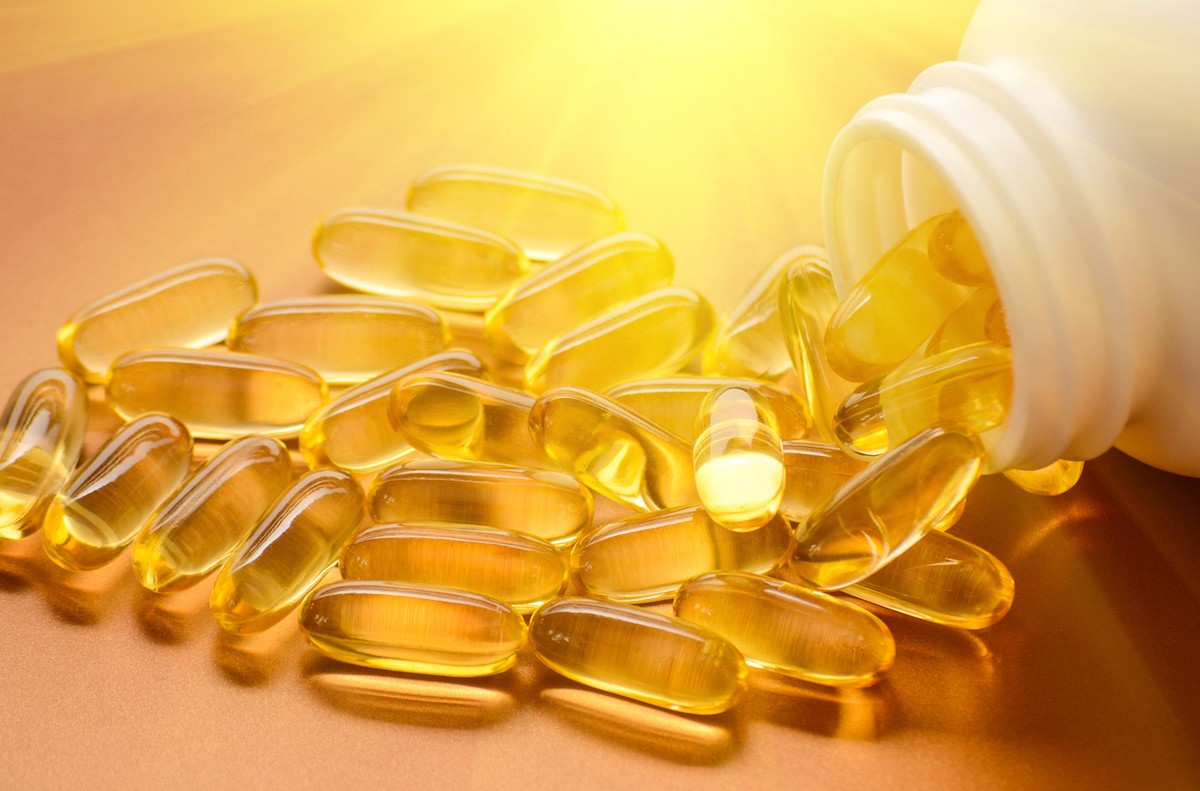
Studies have linked a lack of vitamin D to increased symptoms of both depression and anxiety. Ghyssaert says that vitamin D is also vital for maintaining energy levels but notes that most people are deficient in it.
“Of course, the sun is the best source of vitamin D. However, we recommend adults take a supplement to make up for the loss during winter months or in colder, darker climates,” the doctor tells Best Life. “A suggested dose would be 2000 IU; if you’re deficient, it would be higher. Consult with a doctor before deciding how much to take.”
2
Magnesium
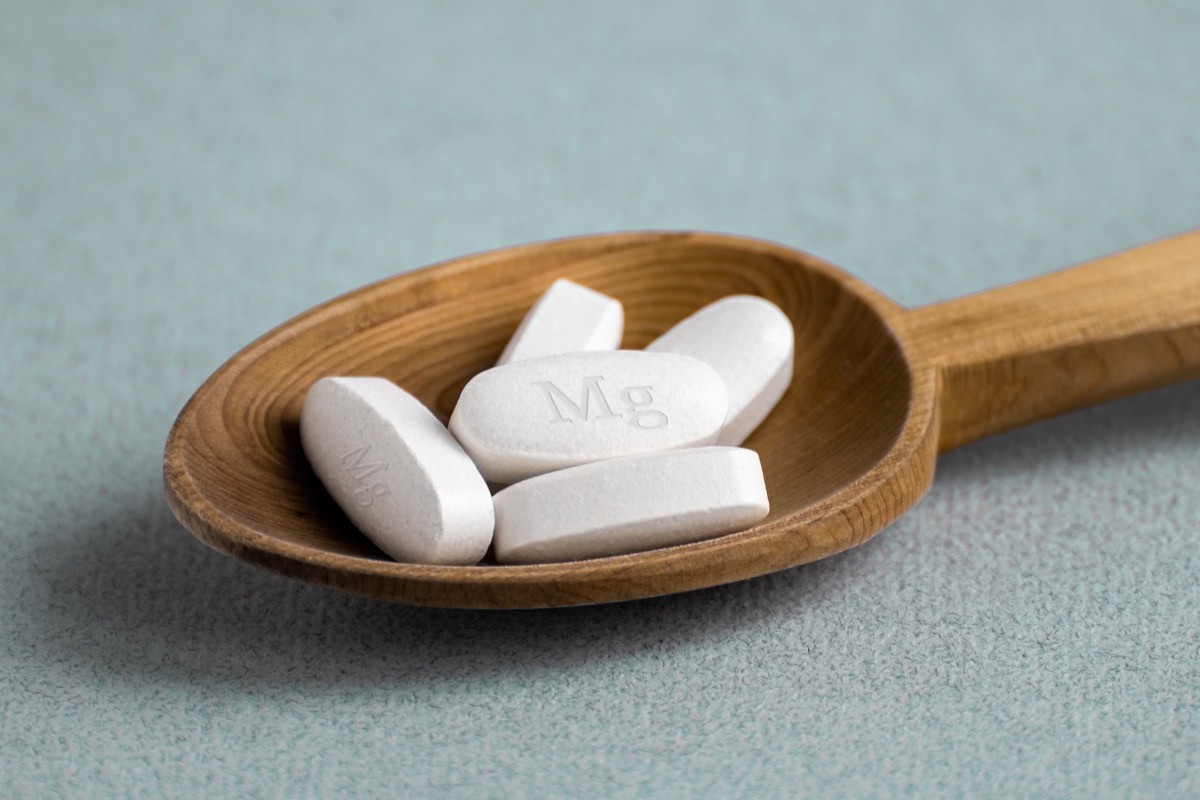
According to the Cleveland Clinic, magnesium can help lower cortisol levels and balance out the neurotransmitters responsible for your “fight or flight” response. This can ultimately soothe your symptoms of anxiety by dialing down your physical reactions to stress.
“Magnesium is essential for brain health,” says Ghyssaert. “It helps modulate the brain’s stress response by regulating serotonin.
“I recommend that my patients take this just before bedtime and build up the dosage [over time],” she suggests. “Start small with 100 milligrams, and work your way up to 250 milligrams.”
3
GABA
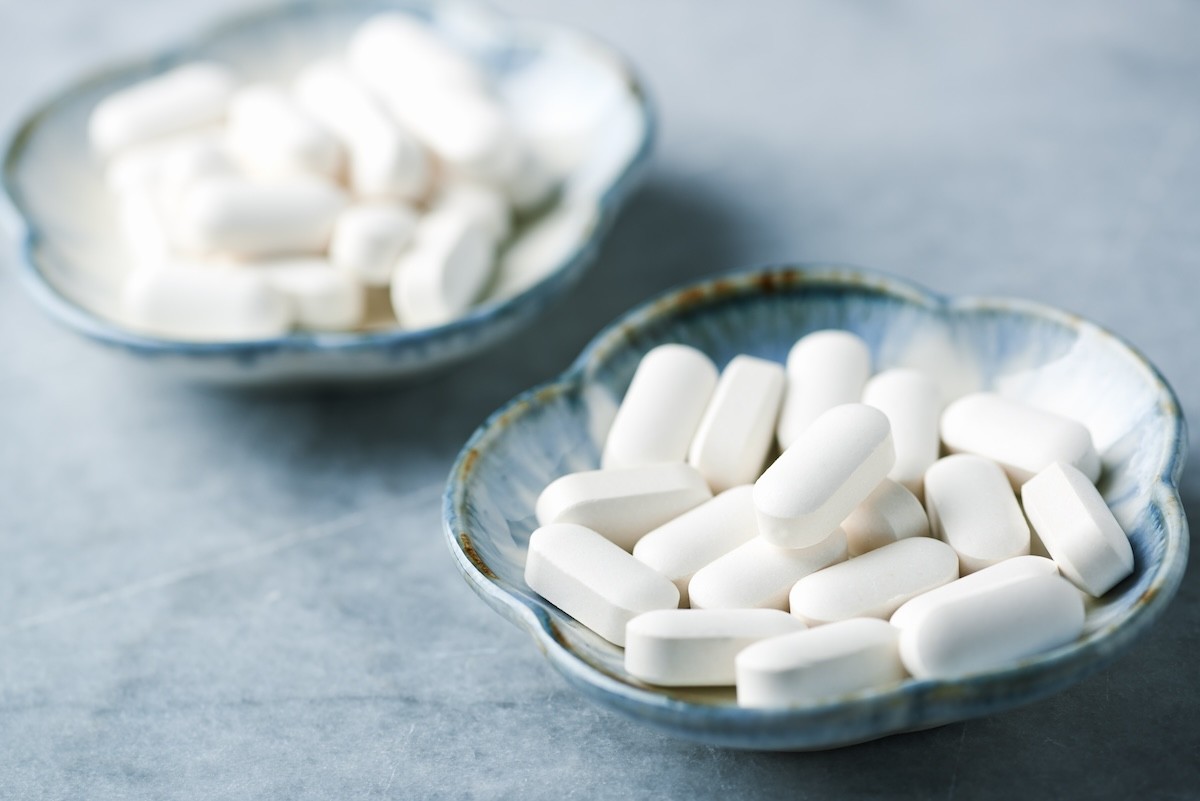
Next, Ghyssaert recommends asking your doctor about GABA supplements.
“Gamma-aminobutyric acid (GABA) is a neurotransmitter that inhibits excessive neuronal activity, helping to promote calmness and reduce anxiety,” she explains, noting that it’s a widely popular stress reduction supplement.
“I recommend starting with a dosage of 250 milligrams daily and working up to 750 milligrams,” she says.
However, she notes that GABA is not necessarily safe for everyone with anxiety. In particular, she says she would not recommend GABA to someone suffering from depression or to anyone who is taking blood pressure-lowering medications.
RELATED: 12 Best Foods to Ease Anxiety, Experts Say.
4
Vitamin B12
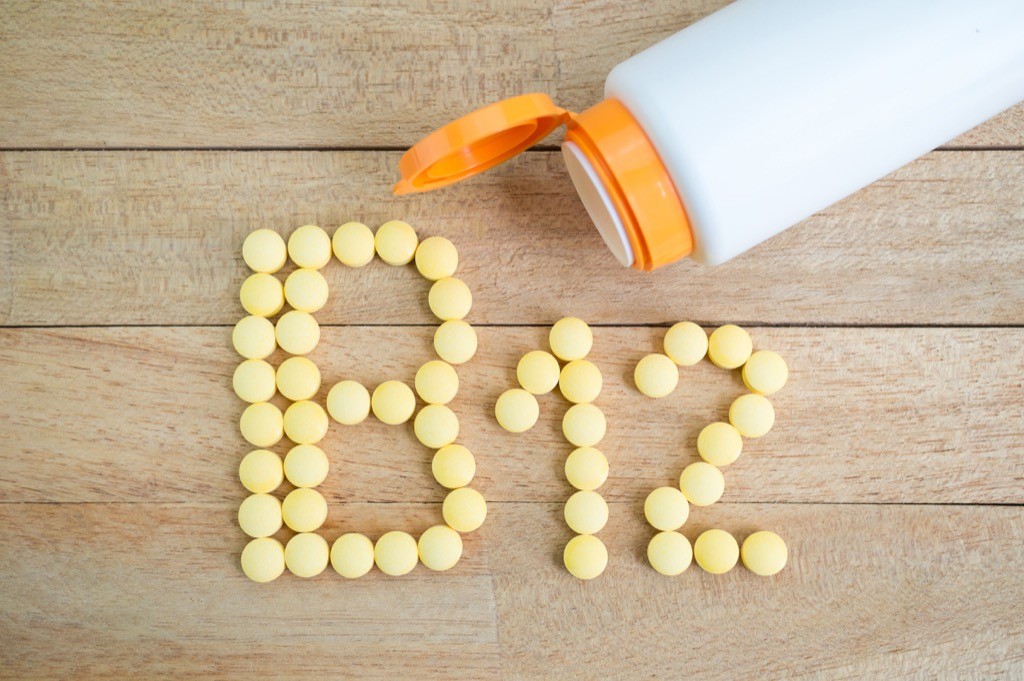
Janine Bowring, ND, a naturopathic doctor and medical content creator, says that taking vitamin B12 may also help promote brain health and reduce anxiety symptoms.
“From a whole food source, it has been found that vitamin B12 helps with your neural protection for your myelin. Myelin is the coating on the outside of your nerves, and a deficiency has been linked to depression,” she explained in a recent TikTok post.
5
Valerian Root
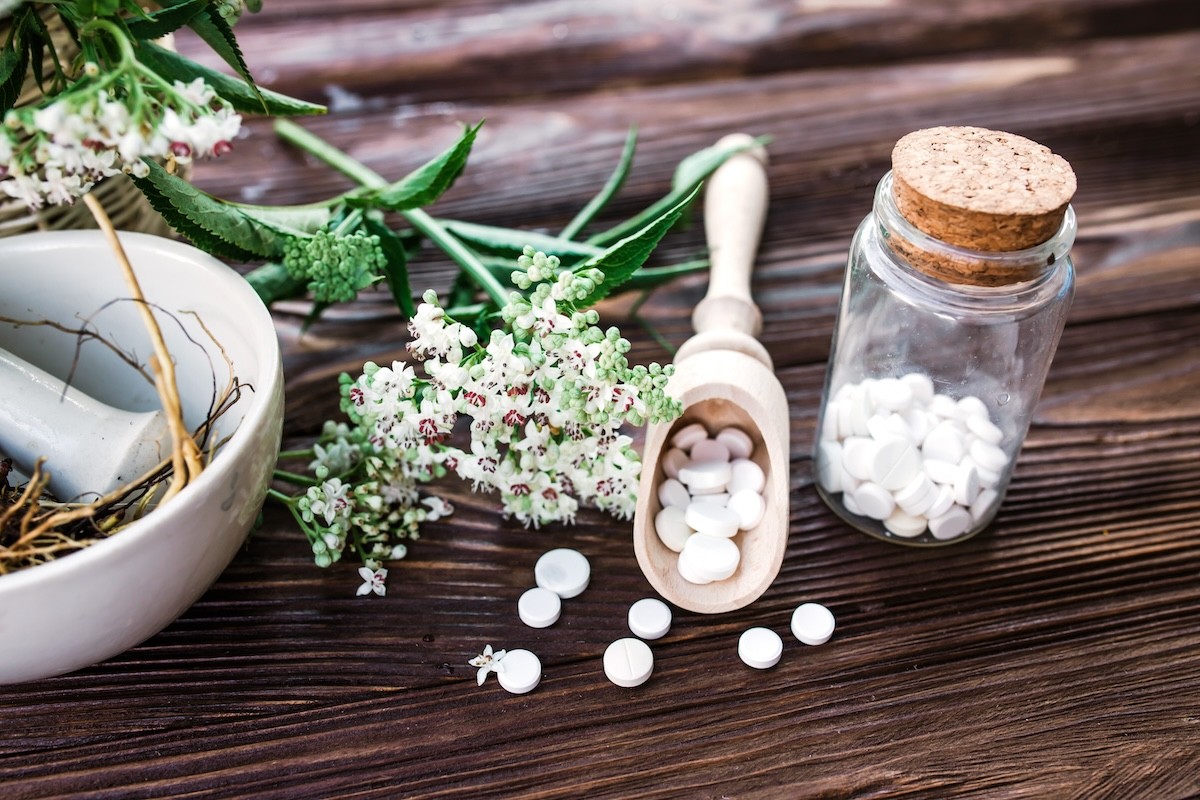
Valerian root is part of a perennial flowering plant that’s often used to improve symptoms of insomnia, premenstrual syndrome (PMS), menopause, headaches, depression, anxiety, and more.
“Valerian root increases GABA levels in the brain slowly and helps to reduce anxiety and improve sleep quality,” says Ghyssaert. “I recommend starting at around 300 milligrams two hours to thirty minutes before bedtime and working your way up to 600 milligrams. You cannot take this if you are pregnant, breastfeeding, or have liver conditions.”
6
Creatine
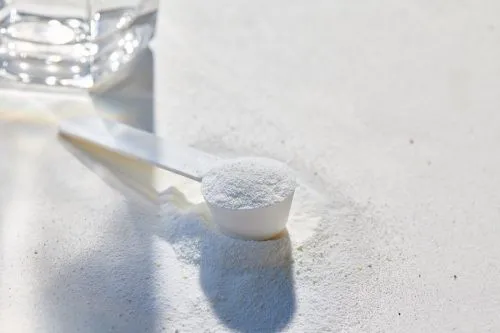
Many people use creatine to help build lean muscle mass and enhance athletic performance, but Jenna Stangland, RD, a sports dietician for the Minnesota Timberwolves, says a lesser-known benefit is that it can also help ease symptoms of anxiety.
“There is a relationship between creatine metabolism in the brain and depression. When there are smaller amounts of white matter creatine and phosphocreatine in the brain, more severe depressive episodes occur,” Stangland, who has partnered with the supplement brand Momentus, tells Best Life.
“Previous research reveals that incorporating daily creatine enhances cell health and survival, positively impacting creatine levels in the brain. Creatine has been shown to impact mood, memory, cognition, and emotion by promoting brain energy levels,” she says.
Stangland notes that women tend to have lower creatine stores within the brain compared to men and may benefit more dramatically from taking daily creatine supplements.
RELATED: 7 Best Supplements for Gut Health, According to Doctors.
7
L-Theanine
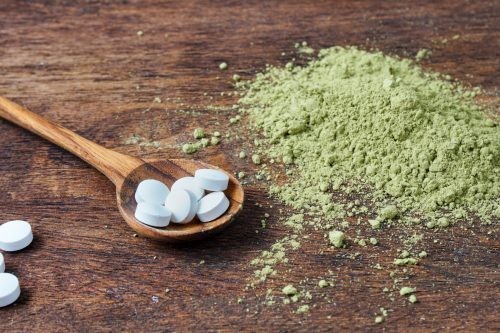
L-Theanine is an amino acid that helps promote relaxation and may help reduce anxiety.
“L-Theanine, found in green tea, promotes relaxation without causing drowsiness. It increases levels of serotonin, dopamine, and GABA, which help improve mood and reduce anxiety. The recommended dosage is 200 to 400 milligrams per day, often taken in divided doses. You cannot take this if you are a child, pregnant, or on stimulant medications.”
8
Ashwagandha
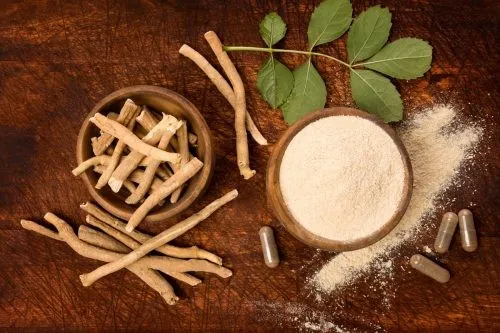
If you’re struggling with anxiety, Ghyssaert also recommends asking your doctor whether ashwagandha may be right for you.
“Ashwagandha, an adaptogenic herb, can help the body manage stress by reducing cortisol levels. It improves sleep, reduces anxiety, and enhances cognitive functions,” she explains.
“I recommend a dose at around 300 milligrams and working your way up to 500, taken once or twice daily. You cannot take this if you are pregnant or breastfeeding,” Ghyssaert points out.
9
Fish Oil
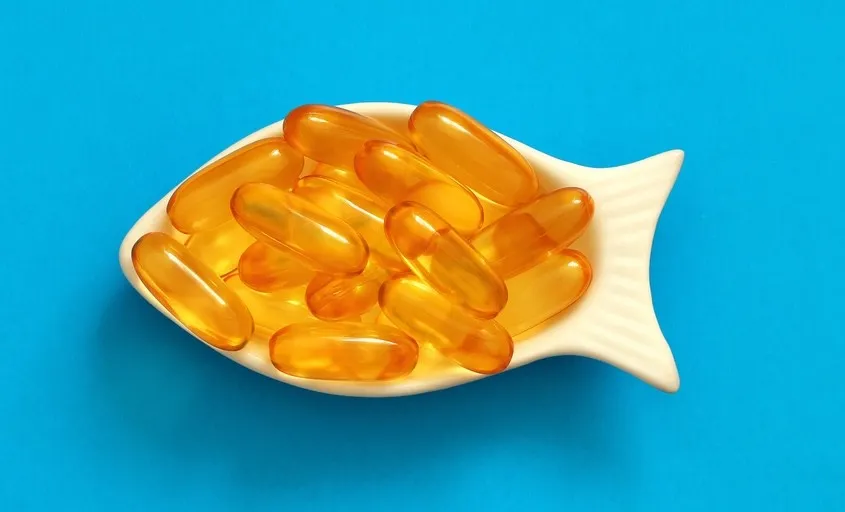
Finally, Bowring recommends asking your doctor about fish oil as a means of improving your anxiety. She says both seafood rich in Omega-3 fatty acids and fish oil supplements with high DHA content can be beneficial.
In fact, a 2018 meta-analysis published in JAMA Network Open reviewed 19 studies that included over 1,200 subjects, all of which compared the effects of Omega-3 supplements to a placebo. They determined that people who took 2,000 milligrams of Omega-3 fatty acids per day saw the greatest reduction in anxiety symptoms, among other physical and mental health benefits.